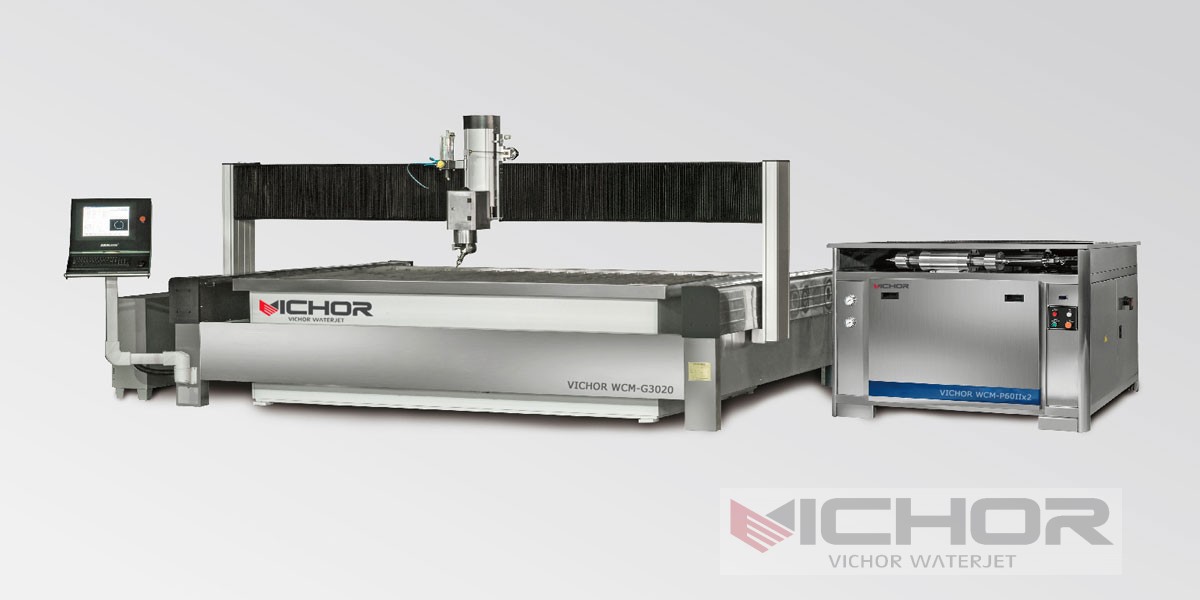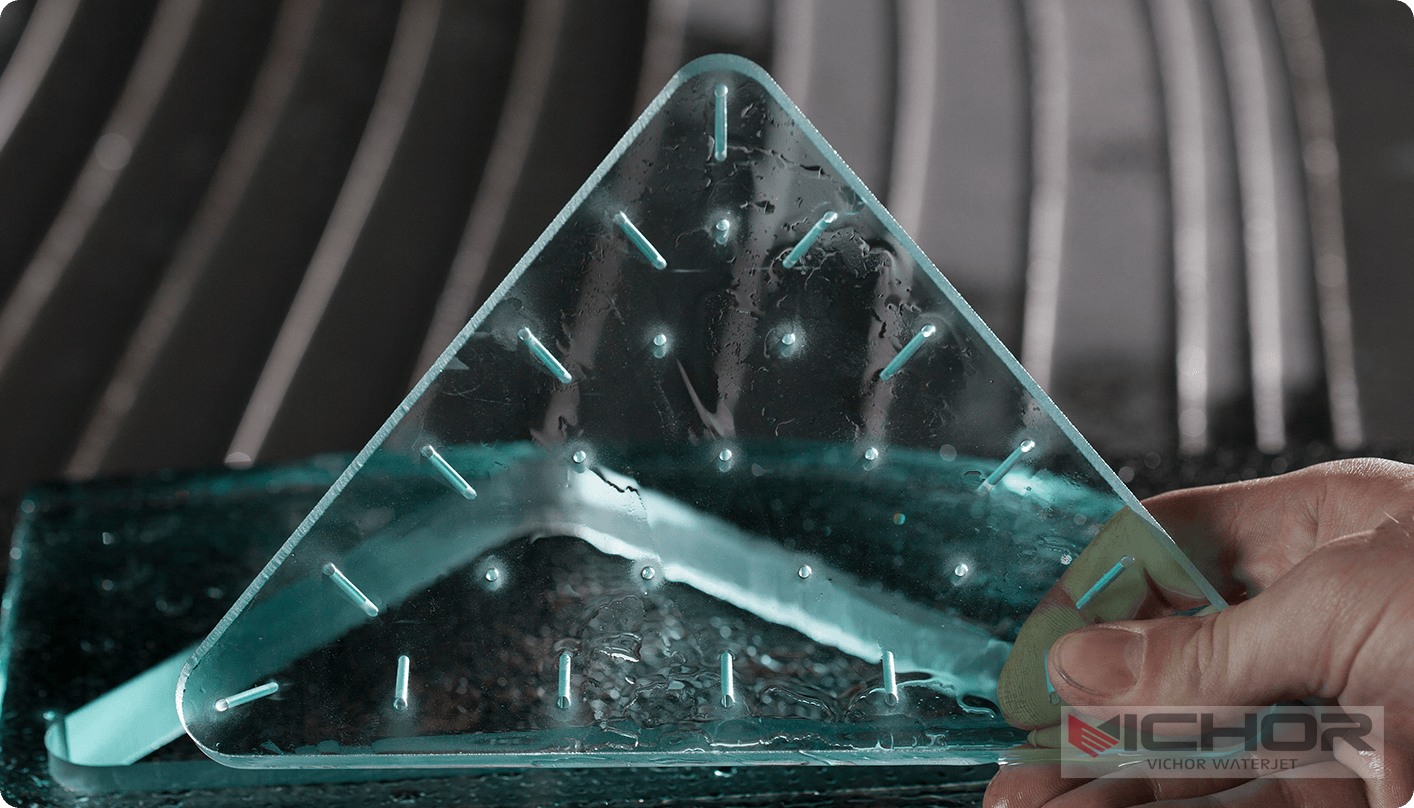
Find the Perfect CNC Water Jet for Sale: Your Ultimate Buyer's Guide
The quest for precision cutting power often leads manufacturers, fabricators, and job shops to search for a CNC water jet for sale. This remarkable technology, harnessing the force of ultra-high-pressure water – often mixed with abrasive garnet – cuts through virtually any material with exceptional accuracy and minimal thermal distortion. Whether you’re expanding capabilities, replacing aging equipment, or venturing into water jet cutting for the first time, navigating the market for a CNC water jet for sale requires careful consideration. This comprehensive guide explores five crucial aspects to empower your purchasing decision.
Understanding CNC Water Jet Technology: The Core Principles
Before diving into the specifics of finding a CNC water jet for sale, it’s essential to grasp the fundamentals of how these machines operate. At its heart, a CNC water jet system utilizes a high-pressure pump (typically intensifier pump technology) to pressurize water to extreme levels, often exceeding 60,000 PSI (4,000 bar) and sometimes reaching 90,000 PSI (6,200 bar) or more. This pressurized water is forced through a tiny orifice in a jewel (diamond, ruby, sapphire), creating a supersonic stream.
Pure Water Jet Cutting: Used for softer materials like rubber, foam, food products, gaskets, and thin plastics. The pure water stream provides a clean, burr-free cut without adding abrasives.
Abrasive Water Jet Cutting: For cutting hard materials like metals (steel, titanium, aluminum, brass), stone, granite, marble, glass, ceramics, and composites, an abrasive material (usually garnet sand) is introduced into the water stream within a mixing tube. The abrasive particles entrained in the high-velocity water erode the material, enabling cutting of thick, hard substances.
The “CNC” (Computer Numerical Control) aspect means the cutting head’s movement across the X, Y, and often Z axes is precisely controlled by computer software following a digital design file (like DXF or DWG). This ensures complex shapes and intricate designs are cut with repeatable accuracy. Understanding this technology foundation is key when evaluating any CNC water jet for sale.
Key Considerations When Searching for a CNC Water Jet for Sale
Not all water jets are created equal. Finding the right CNC water jet for sale hinges on aligning the machine’s capabilities with your specific production needs and shop environment. Here are the critical factors to weigh:
Material Types and Thicknesses: What materials will you primarily cut? Metals, stone, composites? What are the maximum thicknesses you need to handle? Machine power (HP and PSI) directly impacts cut speed and maximum achievable thickness, especially in abrasive cutting. Ensure the CNC water jet for sale has sufficient power for your requirements.
Table Size and Cutting Envelope: Consider the largest workpiece dimensions you anticipate. The machine’s table size (X and Y travel) determines the maximum sheet size it can accommodate. Also, check the Z-axis height for cutting thick materials or stacked parts.
Accuracy, Precision, and Repeatability: Look for specifications on positioning accuracy and repeatability (often measured in thousandths of an inch or microns). Factors like linear guide quality, drive systems (ballscrew vs. linear motor), machine rigidity, and control system sophistication influence this. High precision is crucial for tight-tolerance parts.
Pump Type and Pressure: Intensifier pumps are the industry standard for high-pressure generation. Key specs include horsepower (HP), maximum pressure (PSI/bar), and flow rate (GPM/liters per minute). Higher pressure generally enables faster cutting of thick materials and better edge quality on thinner materials. Reliability and serviceability of the pump are paramount.
Control System and Software: The CNC controller and cutting software are the machine’s brain. Look for user-friendly, industry-proven software that efficiently handles CAD/CAM functions (nesting, path optimization, taper compensation), machine control, and diagnostics. Compatibility with your existing design workflow is important.
Abrasive Delivery System: Efficient and consistent abrasive metering is vital for cut quality and operating cost. Examine the system’s design (vacuum-based, pressurized), hopper capacity, and ability to deliver abrasive without clogging or pulsation.
Machine Rigidity and Construction: A robust, vibration-dampening frame (often granite or polymer concrete bases on premium machines) is essential for maintaining precision, especially during high-speed cutting or with thick materials. Look for high-quality linear motion components.
Cutting Head Technology: Features like dynamic head height control (to maintain optimal standoff distance over uneven surfaces), automatic orifice and mixing tube changers (AWC/AMC), and integrated piercing sensors enhance productivity and automation.
Facility Requirements: Water jets need significant resources: High-voltage 3-phase power (for the pump), ample clean water supply and filtration/recycling systems, adequate floor space (including room for material handling), proper drainage, compressed air, and ventilation (for the abrasive catch tank).
Thoroughly assessing these factors against your business goals is essential before committing to any CNC water jet for sale.
Exploring the Market: New, Used, and Refurbished CNC Water Jets for Sale
The market for a CNC water jet for sale offers several avenues, each with distinct advantages and considerations:
New CNC Water Jets:
Pros: Latest technology, full warranty, customization options, highest performance and efficiency, manufacturer training and support, predictable maintenance baseline, potential for financing/leasing deals.
Cons: Highest upfront capital investment. Depreciation is steepest in the first few years.
Best For: Businesses prioritizing maximum uptime, cutting-edge features, warranty security, high-volume production, or specific custom requirements. Essential for applications demanding the absolute highest precision or speed.
Used CNC Water Jets:
Pros: Significantly lower initial purchase price. Faster availability (sometimes). Potential to acquire a higher-spec machine than a new budget allows.
Cons: Higher risk (unknown maintenance history, potential hidden wear/damage). Limited or no warranty. Potentially outdated technology/software. May require immediate repairs or refurbishment. Lower energy efficiency than newer models. Limited manufacturer support.
Best For: Budget-conscious buyers with strong technical skills for assessment and maintenance, shops needing a secondary machine, or those willing to accept higher risk for lower cost. Extremely thorough inspection is mandatory.
Refurbished CNC Water Jets:
Pros: Middle ground on price. Rebuilt/replaced critical components (pump, controls, motion system) by OEM or reputable third-party. Often comes with a limited warranty. Better known condition than typical “used.” Retains core machine structure.
Cons: Higher cost than basic “used.” Warranty typically shorter than new. May not have all the latest features of a brand-new model.
Best For: Buyers seeking reliability closer to new but at a reduced price point, willing to invest in a professionally restored asset. Offers a good balance of value and reduced risk compared to purely used equipment.
Regardless of the path, always verify the seller’s reputation, request detailed maintenance records (for used/refurbished), and insist on a demonstration cutting your actual material if possible before purchasing a CNC water jet for sale.
Financial Aspects: Cost of Ownership Beyond the Sticker Price
The purchase price is just the beginning of the investment when you find a CNC water jet for sale. Understanding the Total Cost of Ownership (TCO) is critical for sound financial planning:
Initial Purchase Price: The most obvious cost, varying dramatically based on new/used/refurbished status, machine size, pump power, features, and brand.
Installation and Setup: Includes rigging, electrical connection (high-voltage specialists often needed), plumbing (water supply, drain), compressed air, and potentially facility modifications. Can be substantial.
Abrasive (Garnet): This is a major ongoing consumable cost in abrasive cutting. Consumption depends on material, thickness, cut quality settings, and machine efficiency. Optimizing abrasive usage is key to profitability.
Orifices and Mixing Tubes: These consumable jewels and carbide tubes wear out and need regular replacement (frequency depends on hours of use and water quality). Quality impacts cut performance and cost.
High-Pressure Seals and Valves: The pump requires periodic maintenance, including seal replacements, which are critical but costly consumables.
Water Treatment: Filtration systems to purify incoming water (protecting the pump) and water recycling/reclamation systems for the abrasive slurry tank are essential investments that impact operating costs and environmental compliance.
Electricity: The high-pressure pump is a significant energy consumer. Newer pumps are generally more efficient than older models.
Maintenance and Repairs: Regular preventative maintenance (PM) is non-negotiable for reliability. Budget for unforeseen repairs, especially as the machine ages. Service contracts can be valuable but add cost.
Operator Training: Skilled operators are crucial for maximizing machine productivity, cut quality, and minimizing consumable waste. Factor in training costs and time.
Tooling and Workholding: Custom fixtures, slat replacements for the table, and other tooling may be needed.
When evaluating a CNC water jet for sale, request estimates for key consumables (abrasive, orifices, tubes) and factor in energy, water treatment, and maintenance costs specific to that model to build a realistic TCO picture.
Navigating the Purchase Process: Steps to Acquiring Your CNC Water Jet
Finding and acquiring the right CNC water jet for sale involves a structured process:
Define Requirements Rigorously: Document your exact needs (materials, thicknesses, tolerances, part sizes, desired throughput). This is your essential buying criteria.
Research Brands and Models: Investigate manufacturers and dealers. Compare specifications, technology, software, reputation for reliability, and service support networks. Read reviews and industry forums.
Identify Potential Machines: Search online marketplaces (new and used equipment dealers, manufacturer websites, auctions), network within the industry, attend trade shows (like FABTECH).
Shortlist and Gather Quotes: Contact sellers for detailed specifications and formal quotes. Ensure quotes include all critical aspects (machine, pump, software, basic tooling, delivery terms – FOB?).
Conduct Thorough Due Diligence (Especially for Used):
Inspection: Physically inspect the machine. Check hours on the pump and CNC. Look for signs of wear, damage, corrosion, or poor maintenance. Operate the machine if possible.
Maintenance Records: Demand comprehensive service history.
Cut Test: Insist on a demonstration cutting samples of your material at your required thickness and quality.
Control/Software Check: Verify software licenses, functionality, and compatibility.
Evaluate Financing and Payment Terms: Explore options (cash, lease, loan). Understand down payments, interest rates, and terms. Factor in sales tax.
Negotiate and Finalize the Deal: Negotiate price based on your research, inspection findings, and competing quotes. Get all agreements in writing within a formal sales contract.
Plan for Delivery and Installation: Coordinate logistics (rigging, transport). Ensure your facility is fully prepared (power, water, drain, space, foundation if needed). Schedule installation and commissioning with the supplier or qualified technicians.
Training and Support: Schedule comprehensive operator and programmer training. Understand the warranty terms and the process for obtaining technical support and service.
The search for a CNC water jet for sale represents a significant investment in your manufacturing capabilities. By thoroughly understanding the technology, meticulously evaluating your specific needs against machine specifications, carefully considering the new/used/refurbished market, realistically calculating the total cost of ownership, and diligently navigating the purchasing process, you position yourself to make a confident and successful investment.
A well-chosen CNC water jet opens doors to new materials, complex geometries, and high-precision applications that other cutting methods struggle with. It can enhance your competitive edge, improve product quality, and expand your service offerings. Take the time, ask the detailed questions, inspect rigorously, and choose the CNC water jet for sale that truly aligns with your business objectives and operational reality. The power of water awaits.
continue reading
Related Posts
- 1077 words5.4 min read
- 1175 words5.9 min read
- 1255 words6.3 min read




